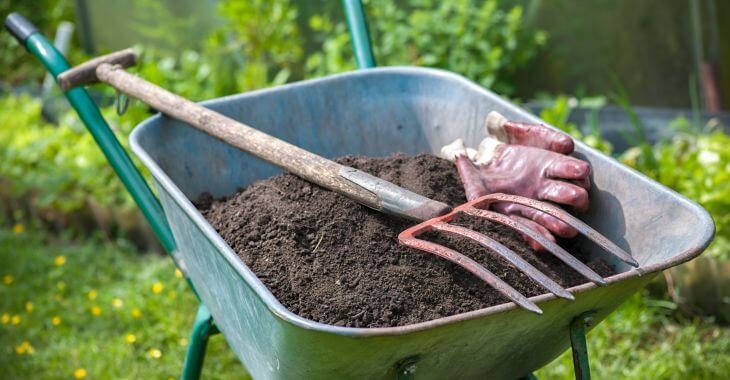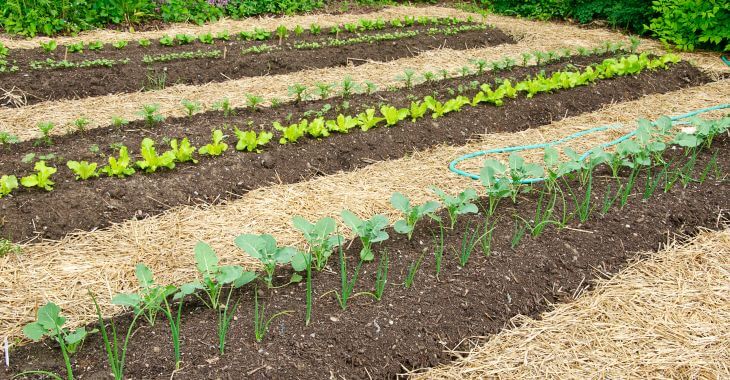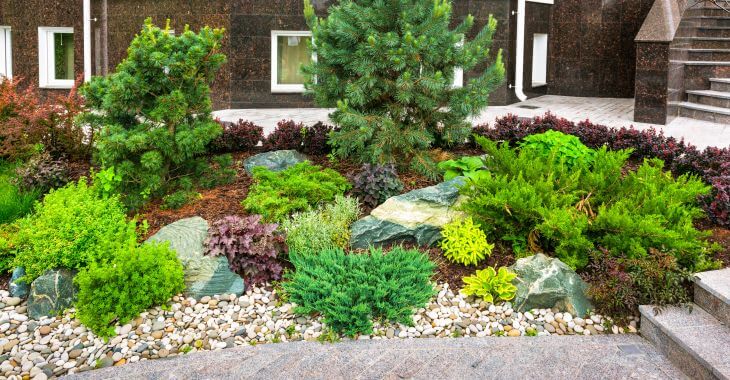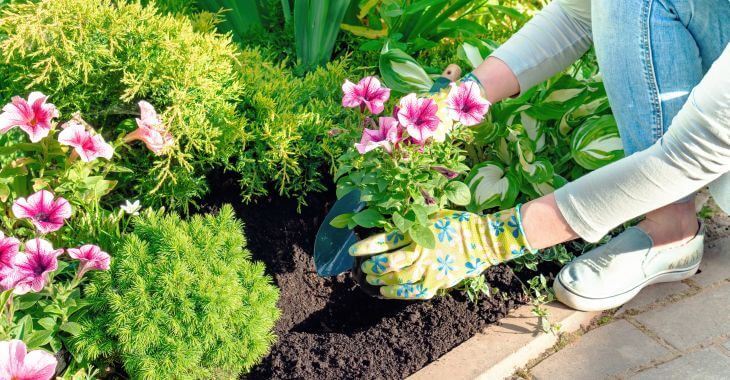Best Compost for Vegetable Garden Soil: What You Need to Know

Finding the best compost for a vegetable garden is paramount for healthy plant growth and bountiful harvests. Understanding the different types of compost and soil components, and how they contribute to a nutrient-rich environment, is crucial for achieving optimal results in your garden.
Types of Compost
Traditional compost is made from a mixture of organic materials like kitchen scraps, yard waste, grass clippings and leaves. These materials undergo decomposition, facilitated by bacteria and other microorganisms, resulting in nutrient-rich compost. Other compost options include:
Manure Compost
Compost derived from animal manure, such as barn animal manure, is an excellent source of nitrogen, phosphorus and potassium, essential nutrients for plant growth. Manure compost should be well-aged or composted before use to avoid potential issues with pathogens and content that can burn plants.
Leaf Mold
Leaf mold is created from decomposed leaves, offering a more finely textured compost. While it is lower in nutrients compared to traditional compost, leaf mold improves soil structure, enhances water retention, and provides an excellent environment for beneficial microorganisms.
Worm Castings
Worm castings, also known as vermicompost, are rich in nutrients and beneficial microorganisms. Produced by worms feeding on organic matter, this compost offers slow-release nutrients and improves soil structure, making it a valuable addition to vegetable and other types of gardens.
The best compost for vegetable gardens provides a balanced mix of nutrients, improving soil structure, moisture retention, and overall fertility. When choosing the best compost to buy for a vegetable garden, you have a variety of options from which to choose.
Soil Components for Vegetable Gardens
In addition to compost, choosing the best soil for vegetable gardens is crucial. Compost adds nutrients, but you still want quality soil to ensure the best growing environment for your plants. Some of the soil components to consider when starting your vegetable garden are as follows:
- Topsoil: Topsoil forms the upper layer of soil and contains organic matter, minerals, and microorganisms. When selecting topsoil for your vegetable garden, opt for loamy soil rich in organic matter for optimal nutrient retention and drainage.
- Peat Moss: Peat moss is a common soil amendment that improves soil structure, moisture retention, and aeration. It is acidic and excellent for plants that thrive in acidic conditions, like potatoes and blueberries.
- Perlite and Vermiculite: Perlite and vermiculite are soil amendments that aid in aeration and water retention. Perlite improves drainage, while vermiculite helps retain moisture, making them valuable components in potting mixes or soil blends.
- Coconut Coir: Coconut coir, derived from coconut husks, is an eco-friendly alternative to peat moss. It improves moisture retention, aeration and soil structure, serving as an excellent medium for vegetable gardens.
Many pre-mixed vegetable garden soils have a combination of these components included. The ingredients and composition percentages are typically listed on the packaging or available through your landscape supplier.
Creating a Balanced Mix for Vegetable Gardens
There is a science to creating the best soil for a vegetable garden. The right balance of nutrients is needed, and it may vary depending on what plants you intend to grow. Some of the considerations for creating a balanced mix of compost and soil for your garden include the following:
- Balanced Nutrients: A good vegetable garden soil mix requires a balance of nutrients. Composts, especially a blend of traditional compost and manure compost, provide a well-rounded nutrient profile for plant growth.
- Texture and Drainage: A well-draining soil mix is crucial for healthy roots. Combining topsoil with organic amendments like peat moss, coconut coir or vermiculite/perlite creates an ideal texture, balancing water retention and drainage.
- pH Balance: Test the pH of your soil to ensure it falls within the optimal range for vegetable growth (usually around 6.0 to 7.0). Adjust pH levels using amendments like lime to raise pH or elemental sulfur to lower it, if necessary. If you are not familiar with soil testing, talk to a local landscaper or landscape supplier for assistance.
- Mulching and Crop Rotation: Regularly mulching your vegetable garden with compost or organic materials helps retain moisture, suppress weeds, and add nutrients over time. Additionally, practicing crop rotation prevents nutrient depletion and reduces the risk of soil-borne diseases.
- Layering: When creating your garden beds, layer different composts and soil components, mixing them thoroughly to ensure an even distribution of nutrients and texture.
- Amending Existing Soil: If you have existing garden soil, incorporate compost and other organic amendments into it to improve its quality before planting.
- Seasonal Maintenance: Replenish the soil with compost and organic matter each season to maintain its fertility and structure, supporting healthy plant growth.
- Soil Testing: Periodically test the soil to monitor nutrient levels and pH, making adjustments as needed to ensure an optimal growing environment for your vegetables.

By understanding the various types of compost and soil components and their roles in promoting healthy plant growth, you can create a nutrient-rich environment that supports thriving vegetable gardens, ensuring a bountiful harvest year after year.

